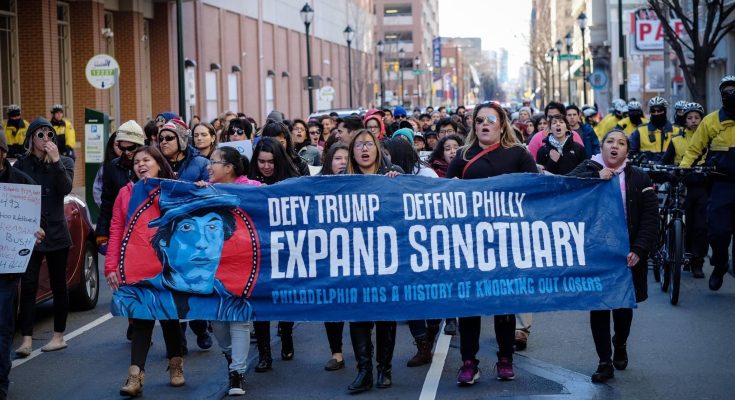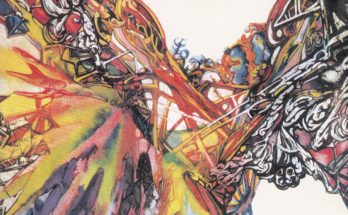By Rodrigo Diaz Guerrero
Those of us who know Jacinta González Goodman know that she carries within her a strong heart and has always been committed to social issues. She has spent many years dedicating herself as an activist but, above all, as a community organizer. She graduated from Wesleyan University with a degree in Latin American Studies and Economics in the U.S. in 2007. After the devastation left by Hurricane Katrina in New Orleans, she began organizing undocumented day laborers and families to fight for labor rights, against police violence, and against deportations by immigration agencies. Back in Mexico, she worked for several years with the organization Poder organizing the Sonora River basin committees against what is known as «the worst environmental disaster in the history of mining in Mexico.» It was when a Grupo México mine spilled 40 million liters of acidulated copper sulfate into the Sonora and Bacanuchi rivers—toxins that spread for more than 250 km and changed the lives of more than 22,000 people in seven municipalities of the Mexican state. After that, González started with Mijente where she has been a senior organizer for several years.
RDG: What is the Mijente Project about?
JGG: Mijente identifies itself as an organizing center, both on the ground and in the digital world, to favor Latino and Chicano people in the United States and Puerto Rico. We organize on economic, gender, racial, and environmental justice issues.
RDG: What is your role in Mijente and what projects are you carrying out today?
JGG: Currently in Mijente, I direct a campaign that in English we call No Tech for ICE—no technology for ICE (the immigration police)—where we have been working to demonstrate and organize against the deportation policies of the United States Government; but also against data and technology companies that have helped the Department of Homeland Security create a system of surveillance, arrests, and deportations that are affecting the entire U.S.
RDG: The Philosophy of Liberation, (whose greatest exponent is Enrique Dussel), promotes a break with Eurocentric hegemonic thought and accepts non-Western thought as legitimate. It makes the presence of the other visible. Likewise, it invites us to rethink philosophical problems from these perspectives assuming that, although philosophy is theoretical, it ascends from the abstract to the complex of practice through politics. When reading Mijente’s Principles of Unity, I was referred to the thought of the philosophy of liberation. What inspired the Mijente movement?
JGG: We do have these principles of liberation. We really have several strategic paths where sometimes we fight without, against, and from the State in the sense that sometimes we are fighting, campaigning, and demanding different policies. We also do electoral work. We have members running for different positions in the government. And we also create options without the State—or creations from the vision of the community in terms of what the needs are and what needs to be seen outside of the powers of authority.
RDG: On a personal level, did you have an epiphany that you want to share, something that you experienced that was essential to do what you do now?
JGG: I think that one of the things that motivated me to organize, particularly on the issues of migration and deportation, is…well, I am from San Miguel de Allende with a Mexican father and an American mother. All my life I have seen how foreign people are received in San Miguel—tourism and expats are received—which is the term they like to use, but they are also migrants, right? In Mexico they are given a lot of space, they can live freely, they can have many comforts while the people who emigrate from Mexico to the United States are criminalized, discriminated against, treated in a dehumanized manner, and their rights are violated every day. For me it was important to understand not only why the differences in the treatment of people, but also what is the economic model that allows some people to move freely and other people to be constantly stalked suffering simply for trying to live a life with dignity and with access to the same resources. So, having the phenomenon so close made me see the difference—understand that for economic reasons, for racial reasons, there was always that difference that seems extremely unfair to me and that you really need to organize to counteract it. That’s why I joined the movements and that’s why I’m still in Mijente. Also, because I see that in the United States there is a Latino community that is constantly growing but still does not have the same rights and access to the same things. We need to create organizational spaces where we not only need more people: we need people who are more organized, more aware, and more united in order to see the results that are needed.




